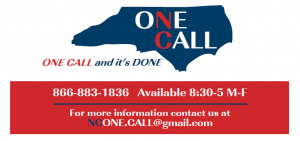Can a Single Phone Call Really Make a Difference?
May 14, 2013
Guest Poster: Cindy Gay, MD – Professor of Medicine, The University of North Carolina – Chapel Hill
In an era of one-pill regimens and natural life-span expectations, we HIV providers still work in a world with a huge, heart-breaking gap between those who are HIV+ and those who are in treatment. In our state, blessed with internationally renowned HIV institutions and determined to provide gold-standard treatment and resources for both providers and patients, there are still very big barriers between a prospective HIV patient and care. Finding a way to bridge the gap between being a person with HIV and a person being treated for HIV is arguably the number one job of everyone reading this e-mail. Whether you are a case manager or a doctor, whether you are looking at the HIV treatment cascade or simply contemplating the alarmingly fast growth of young black gay men becoming infected in our state, we’ve got a gap.
UNC and North Carolina’s Division of Public Health have launched a new program that should make that gap as small as the time it takes to call a toll free number. ONE CALL should become a key resource for providers and patients who are trying to get from “I’m ready for treatment” to “I’ve got the facts and I’ve got a clinic and I’m ready to go”. I wanted to take the time to explain how this resource will not only help those who are HIV+, but how it is designed to help you, the providers.
ONE CALL can benefit HIV providers or anyone working with HIV patients either newly diagnosed or out of care by providing immediate access to trained nurses who can counsel patients if you don’t have the time or comfort level. To our knowledge, ONE CALL has the only updated list of HIV providers across the state, with detailed information on hours of operation, availability of ADAP assistance, acceptance of Medicaid and language translation services, and more. In sum, ONE CALL provides the following:
• Free service
• Access to the only comprehensive and updated HIV provider directory in the state
• Contact information for your county’s State Bridge Counselor who can offer case management and connect a patient to additional support services
• The ability to speak to trained nurses who can provide basic HIV counseling for your patient
• Personal assessment of barriers to care for each caller
• Reassurance of a patient’s concerns related to care prior to their first appointment
• Individualized referrals and immediate transfers to HIV clinics to schedule appointments
Illustrating how this resource can serve you and your patient are provided by two recent calls:
A college student receiving HIV care at their current university clinic will be relocating to their hometown for the summer. Due to a lack of transportation, they will be unable to continue care at their current clinic and were looking for treatment and services close enough to their hometown to attend appointments, but at a discreet location as disclosure is a concern. They were connected to a clinic that both the caller and nursing staff felt would be a good fit.
A New York social worker called UNC’s Infectious Disease Clinic on behalf of their client who is relocating to eastern North Carolina. UNC provided the ONE CALL number and they were able to connect them with a clinic which has a financial counselor on staff and provides assistance with ADAP as these were two stated patient concerns. They were also given the number to their future State Bridge Counselor to aid in a smooth transition to HIV care in North Carolina.
ONE CALL holds considerable potential, for providers and our patients alike, to build a stronger network of care throughout North Carolina. We can now transition our patients from diagnosis to consistent care at the location of their choice without skipping a beat. All it takes is a single phone call.
www.nconecall.com
